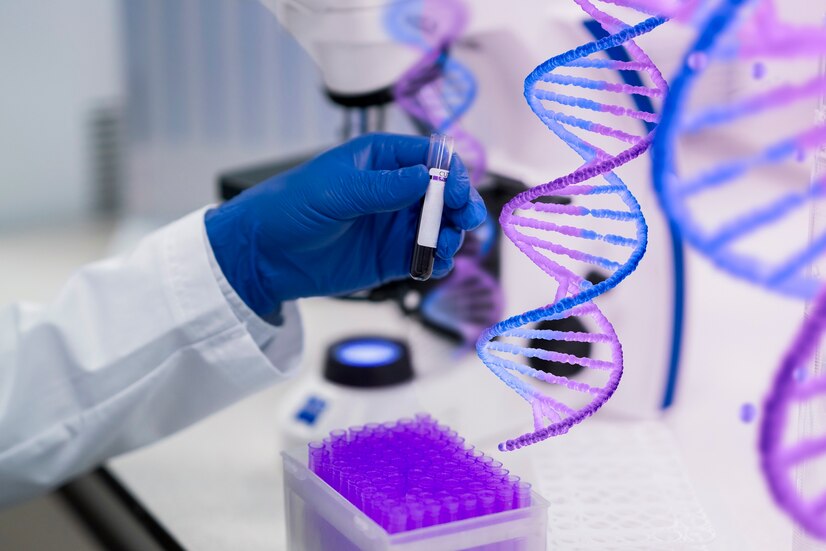Genetic Diseases: Understanding Their Causes, Effects, and Emerging Treatments
Genetic diseases are disorders caused by mutations or alterations in an individual’s DNA. These mutations can lead to portatore sano malattie ereditarie various health problems, from mild to severe, and can affect nearly any part of the body. With advancements in genetic research, scientists have made significant strides in understanding the underlying causes of these diseases and developing innovative treatments. This article explores what genetic diseases are, their causes, the impact on individuals and families, and the potential for future treatments.

What Are Genetic Diseases?
Genetic diseases occur when changes or mutations happen in the DNA, which contains the instructions for how the body functions. These mutations can be inherited from one or both parents or can occur spontaneously. Genetic mutations can affect a single gene or involve larger sections of chromosomes, leading to a wide variety of health conditions. Some well-known genetic diseases include cystic fibrosis, sickle cell anemia, Huntington’s disease, and Down syndrome.
Genetic diseases can be classified into two main categories:
- Single-gene disorders: Caused by mutations in a single gene. For example, cystic fibrosis results from a mutation in the CFTR gene, and sickle cell anemia is caused by a mutation in the hemoglobin gene.
- Chromosomal disorders: These involve changes in the number or structure of chromosomes, such as Down syndrome, which results from the presence of an extra chromosome 21.
Causes of Genetic Diseases
Genetic diseases are caused by mutations in the DNA sequence. These mutations can occur in several ways:
- Point mutations: A change in a single base pair of DNA. A well-known example is sickle cell anemia, which is caused by a mutation in the hemoglobin gene, altering the shape of red blood cells.
- Insertions and deletions: Sometimes, pieces of DNA are added or removed, which can cause diseases like cystic fibrosis, where three base pairs are deleted from the CFTR gene.
- Chromosomal abnormalities: These occur when there is an extra or missing chromosome or structural changes in chromosomes. Down syndrome is caused by having three copies of chromosome 21.
These mutations may be inherited from parents or can occur randomly, known as de novo mutations. Inherited mutations follow specific patterns of inheritance, which we will discuss next.
Inheritance Patterns
The way genetic diseases are passed down from one generation to the next depends on the type of mutation:
- Autosomal dominant inheritance: Only one mutated gene is needed to cause the disease. If one parent has the mutation, there is a 50% chance that each child will inherit the disorder. Huntington’s disease is an example.
- Autosomal recessive inheritance: Both parents must carry a copy of the mutated gene for the disease to develop. Cystic fibrosis and sickle cell anemia are inherited in this way.
- X-linked inheritance: These disorders are caused by mutations on the X chromosome. Males are more affected because they only have one X chromosome. Hemophilia is an example.
- Mitochondrial inheritance: Some conditions are inherited through the mother’s mitochondria, which are passed to offspring via the egg cell. Mitochondrial diseases affect energy production in cells and can cause neurological and muscular problems.
Impact of Genetic Diseases
Genetic diseases can significantly affect an individual’s health and quality of life. Depending on the condition, they may cause developmental delays, chronic pain, organ dysfunction, or even early death. Some genetic diseases, like cystic fibrosis, require lifelong treatment and care, while others, like Huntington’s disease, may not appear until adulthood but progressively worsen over time.
In addition to the physical impact, genetic diseases also take an emotional toll on individuals and their families. The uncertainty of future health outcomes and the possibility of passing the disease on to future generations can create stress and anxiety. Financial burdens from medical care and treatments are also common for families dealing with genetic conditions.
Advances in Treatment
While many genetic diseases still lack a cure, advances in medical research have led to the development of new therapies. Gene therapy, for example, aims to replace or repair faulty genes to treat or prevent genetic disorders. CRISPR gene editing is one of the most promising tools in this field, enabling scientists to edit genes with precision. This technology holds potential for treating genetic conditions like sickle cell anemia and muscular dystrophy.
Other treatments focus on managing symptoms or replacing defective proteins. Enzyme replacement therapy (ERT), for example, is used to treat Gaucher disease, where patients receive a synthetic version of an enzyme their body lacks. Researchers are also exploring personalized medicine, which tailors treatments based on an individual’s genetic makeup, to enhance the effectiveness of therapies.
Conclusion
Genetic diseases are a complex and varied group of disorders that can have a profound impact on individuals and families. Although many of these conditions currently have no cure, ongoing research into genetics, gene therapy, and personalized medicine offers hope for more effective treatments in the future. With continued advancements in genetic research, the potential to cure, manage, and even prevent many genetic diseases is on the horizon, improving the lives of those affected by these conditions.
